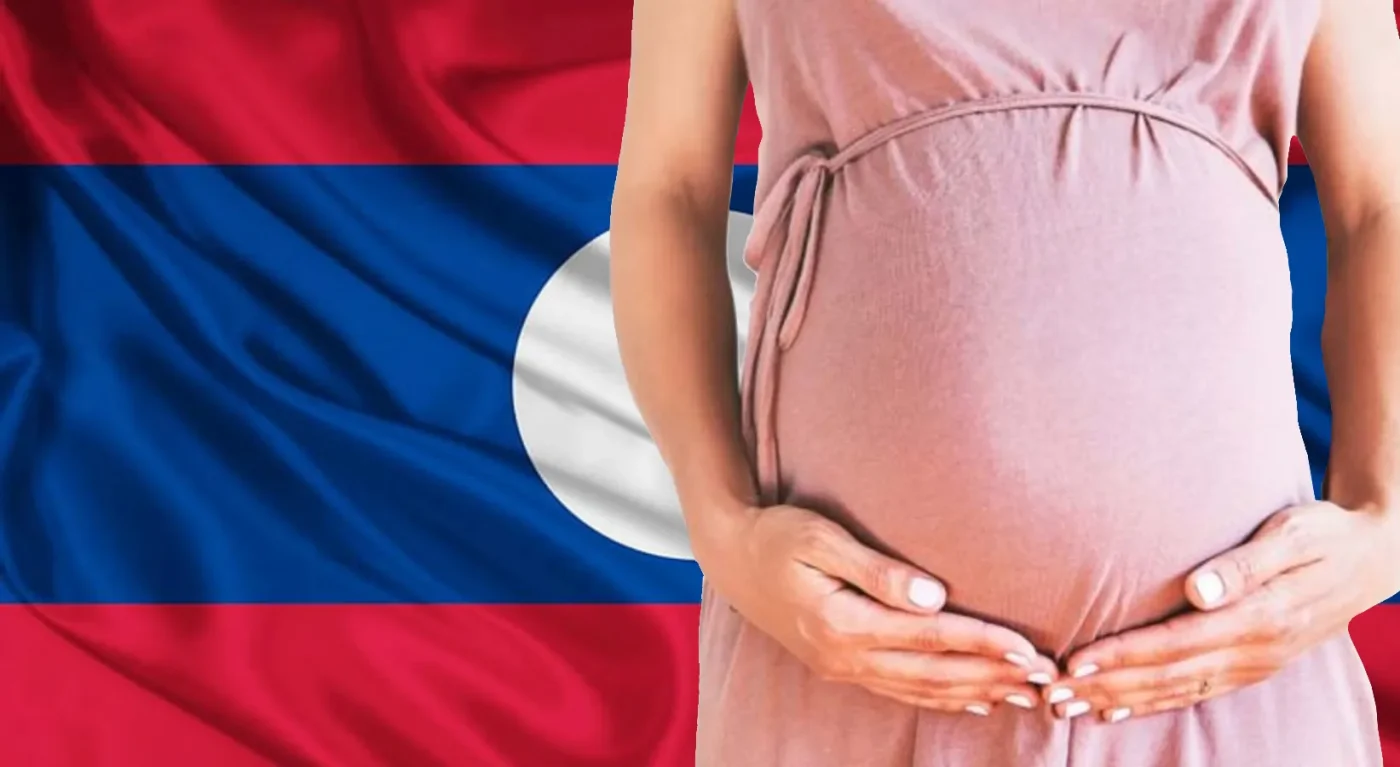In a resolute move to curb human trafficking, Lao authorities have issued a stark warning against surrogacy services, declaring them illegal under the country’s criminal code. Perpetrators face severe penalties, including prison sentences of up to 19 years and fines equivalent to approximately 400 million kip (US$18,500 as of June 2, 2025). The crackdown comes amid a surge in reported cases and advertisements promoting such services, often targeting vulnerable women with promises of financial security.
A Growing Concern in Laos
The issue of illegal surrogacy has gained significant attention in recent years, with authorities uncovering numerous cases linked to human trafficking. Between 2018 and 2019, Lao law enforcement identified a wave of advertisements offering surrogacy services, leading to the arrest and prosecution of suspects in five major cases. The People’s Court delivered verdicts in all instances, imposing the harshest penalty of 19 years imprisonment alongside substantial fines. These rulings underscore the government’s firm stance against what it classifies as a serious criminal offense.
Colonel Kikeo Chanthalangsy, Director of the Anti-Human Trafficking Department under the Ministry of Public Security, emphasized the legal framework underpinning the crackdown. “Any individual or organization involved in offering, arranging, or advertising such services is violating the law and will face serious legal consequences” he told local media. Under Article 215 of the Lao Criminal Code, surrogacy-related activities are explicitly categorized as human trafficking, carrying severe repercussions for those found guilty.
Legal and Social Implications
The Lao Criminal Code casts a wide net over those implicated in surrogacy arrangements. Not only are recruiters and facilitators liable, but individuals who agree to become surrogates also face legal consequences. Beyond the courtroom, the risks extend to physical and mental health challenges for the women involved, as well as potential harm to their families. Perhaps most troubling is the fate of children born through these illegal arrangements, who are legally considered victims of human trafficking. Their future remains uncertain, a poignant reminder of the broader societal impact of such practices.
Authorities have been particularly alarmed by the persistence of advertisements on social media platforms, even in recent years. These promotions often lure potential surrogates with promises of high wages—enough to support an entire family—and assurances of comprehensive care during pregnancy, including medical and living support. Such tactics prey on economic vulnerabilities, exploiting women in desperate circumstances. Colonel Kikeo has urged the public to remain vigilant and report any suspicious activities through designated channels, including the 1300 hotline or a dedicated WhatsApp number operated by his department.
Government Stance and Enforcement
The Lao government has made it clear that no private hospital or clinic is permitted to offer or facilitate surrogacy services, and such practices have never been authorized. This policy reflects a broader effort to combat human trafficking in all its forms, a challenge that extends beyond borders in Southeast Asia. The Ministry of Health has also been tasked with providing accurate information to individuals seeking guidance on surrogacy or adoption, directing them to consult doctors at government-designated hospitals.
Enforcement efforts have intensified, with anti-human trafficking units actively monitoring online spaces where illegal services are often advertised. The continued discovery of such promotions in 2024 and 2025 highlights the evolving nature of the problem, as recruiters adapt to digital platforms to reach potential targets. The government’s response has been to double down on public awareness campaigns, encouraging community involvement in identifying and reporting these activities to ensure timely intervention.
Regional Context and Challenges
Laos is not alone in grappling with the issue of illegal surrogacy and human trafficking. Across Southeast Asia, countries like Thailand and Cambodia have faced similar challenges, with cross-border networks often exploiting legal loopholes and economic disparities. In Thailand, for instance, surrogacy laws were tightened following high-profile scandals in the mid-2010s, restricting commercial surrogacy to protect vulnerable women. Cambodia, too, banned the practice in 2016 after it became a hub for international surrogacy arrangements. Yet, enforcement remains uneven, and the demand for surrogacy services—often driven by foreign clients—continues to fuel underground operations.
In Laos, the socioeconomic context adds another layer of complexity. With a significant portion of the population living in rural areas and facing economic hardship, the promise of financial gain through surrogacy can be tempting. This reality underscores the need for broader structural solutions, such as poverty alleviation programs and education initiatives, to address the root causes that make women susceptible to exploitation. Without such measures, punitive actions alone may not suffice to dismantle the networks profiting from these illegal activities.
Human Rights and Ethical Concerns
The crackdown on surrogacy in Laos also raises important questions about human rights and ethical considerations. While the government’s intent to protect vulnerable individuals is clear, some advocates argue that blanket bans on surrogacy risk driving the practice further underground, potentially exposing women to even greater dangers. Without regulated alternatives or support systems, those involved in surrogacy—whether by choice or coercion—may lack access to legal protections or medical care, exacerbating their vulnerability.
Moreover, the classification of children born through illegal surrogacy as victims of human trafficking, while legally accurate under Lao law, poses challenges for their integration into society. Ensuring their rights and welfare will require coordinated efforts between government agencies, civil society, and international organizations. The long-term impact on these children, as well as on the women who carry them, remains a critical area of concern for policymakers and activists alike.
Public Response and Future Outlook
Public reaction to the government’s stern measures has been mixed. While many in Laos support the crackdown as a necessary step to combat exploitation, others express concern about the lack of dialogue around reproductive rights and the socioeconomic factors driving women into such arrangements. Community leaders and local organizations have called for greater transparency in how cases are handled and for more resources to be allocated to prevention and rehabilitation programs.
As Laos continues to strengthen its anti-human trafficking framework, the balance between enforcement and empathy will be crucial. International cooperation could also play a role, particularly in addressing the transnational networks that often orchestrate these illegal services. For now, the government’s message is unequivocal: surrogacy in any form will not be tolerated, and those who engage in it risk severe consequences.
As this issue unfolds, questions linger about how Laos will address the underlying drivers of human trafficking while protecting the rights of those caught in its web. The path forward will likely demand a multifaceted approach, combining legal reforms with social support to ensure that neither women nor children are left behind in the fight against exploitation.















